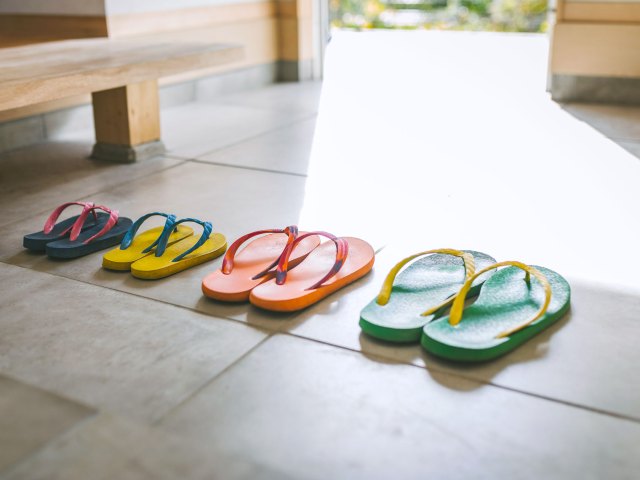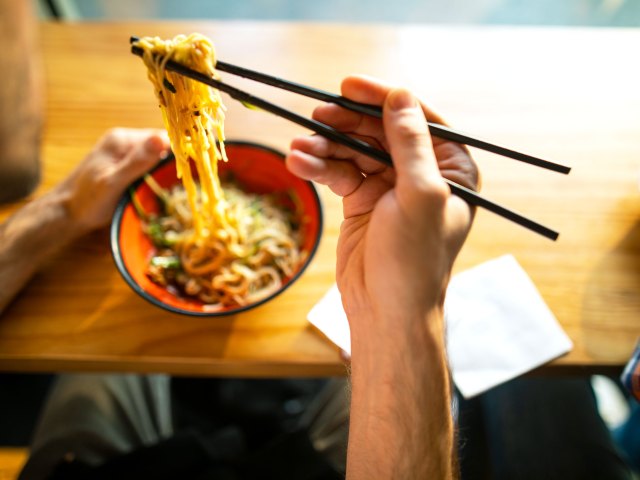Visiting a new country gives us a chance to experience life from a different perspective. But without knowing the local customs, it’s easy to make a cultural misstep. From chopstick etiquette in China to coffee taboos in Italy, here are 10 unexpected cultural faux pas to avoid around the world.
Immediately Accepting Gifts

Gift-giving is an important aspect of Japanese culture, both in personal relationships and in professional settings. When offered a gift, it is customary to politely refuse it a few times before finally accepting, as immediately accepting a gift can be seen as overly eager or impolite. This practice is common even in situations where a gift is expected, such as on a birthday.
Additionally, it is customary to take the gift with both hands, instead of just one, which is seen as a sign of respect, as is waiting to open the gift in private later. A polite way to say thank you is “arigatō gozaimasu” (pronounced like “ah-ree-gah-toh goh-zah-ee-mahs”). And if you plan to see the gift giver in the future, don’t forget to return the favor at your next meeting.
Touching Someone’s Head

In Thai Buddhism, the head, as the highest point on the body, is considered the most sacred part of the body and should never be touched by another person. Doing so is seen as very disrespectful, even as a playful gesture with children, and it could land you in hot water with locals. On the other hand, feet are considered the least pure part of the body. In Thailand, always remove your shoes before entering a temple or someone’s home, and try not to point with your feet or show the bottom of your feet when sitting.
Wearing Shoes Inside the Home

Many cultures around the world encourage removing shoes before stepping into a home, which is a sign of respect to the host and also keeps the floors clean. In places such as Japan, Thailand, South Korea, Hawaii, and parts of Europe such as Scandinavia and Turkey, it’s common practice to remove your shoes. In many cultures, a host will provide slippers to guests; in Japan, these indoor house shoes are known as uwabaki.
Blowing Your Nose in Public

Blowing your nose in public, particularly at restaurants, is considered poor form in China. (The same is true in several other countries in Asia and the Middle East, such as Japan, Saudi Arabia, and South Korea.) If you need to blow your nose, it’s best to excuse yourself from the table or the public setting, and do so as discreetly as possible. It would also be considered rude to blow your nose with a handkerchief and return it to your pocket, so stick with one-use tissues and an inconspicuous space.
Greeting While Sitting

In Pakistan and many other countries, it is considered disrespectful to remain seated when introduced to a stranger or an elder. Instead, you’ll observe Pakistanis rising from their chairs to greet and show respect to an elder or stranger when they enter a room. If more than one person is introduced or entering a room at the same time, the elder should always be greeted first. In Pakistan, it is also considered rude to sit with your legs outstretched.
Smiling at Strangers

In America, it may be common to smile at strangers you pass on the street, but in several other cultures, including South Korea, this action may be viewed as strange. A smile suggests friendliness and familiarity, and due to the strong respect for hierarchy and a tendency to be more formal and keep to themselves, many Koreans are less likely to engage with strangers in the casual, familiar way that’s common in many Western cultures.
Drinking a Cappuccino After Noon

Coffee with milk — like a cappuccino — is typically considered a morning beverage in countries such as Italy and Spain, best enjoyed with breakfast. Ordering one after noon is often seen as unusual, as milk is thought to disrupt digestion, so it’s better to consume it in the morning and give your body more time to process it. This doesn’t mean you can’t get your caffeine fix, though — coffee culture thrives in both Italy and Spain. Espresso is the go-to choice for an afternoon pick-me-up, commonly enjoyed while standing at a coffee bar and quickly sipped in a few gulps before continuing with the day.
Public Displays of Affection

In many predominantly Muslim countries in the Middle East, such as the United Arab Emirates, kissing, cuddling, and even holding hands is not acceptable in public. Public displays of affection not only are viewed as inappropriate and indecent, but they also can result in fines and arrest. To avoid an awkward or potentially more serious situation, it’s best to refrain from any PDA while in the UAE. Additionally, avoid practices such as swearing, public drunkenness, and dressing immodestly, all of which can carry more significant consequences here.
Using Chopsticks Improperly

Dining with chopsticks in China comes with its own set of etiquette rules. For starters, it’s considered impolite to point with chopsticks or use them to move bowls around the table. One of the most disrespectful gestures is leaving chopsticks standing upright in a bowl of rice, as this resembles incense offerings made to the deceased. When not in use, chopsticks should be placed on a chopstick rest or laid horizontally across your bowl.
Chewing Gum

Chewing gum isn’t just a faux pas in Singapore — the sale of it is actually illegal. Getting caught chewing gum can result in a fine, while bringing it into the country could land you in legal trouble. The law was introduced in 1994 after multiple issues occurred with vandals sticking gum on Mass Rapid Transit (MRT) door sensors, preventing them from closing properly. Additionally, improper disposal of chewing gum was costing the city about $150,000 a year in cleanup. Littering, spitting in public, and even eating on the metro can also result in a fine in Singapore, which is considered one of the cleanest countries in the world.
More from our network
Daily Passport is part of Inbox Studio, an email-first media company. *Indicates a third-party property.
















